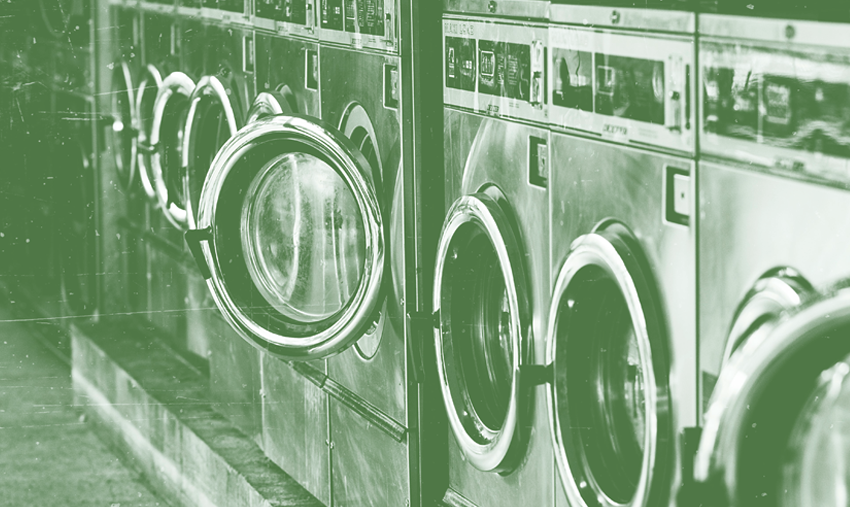In 2018, Dutch police found 350,000 euros in a washing machine, and arrested the owner on suspicion of what crime?
Don't scroll until you've answered.

Duh! is a weekly column that gives circuitous answers to obvious questions. If you dig it, you can find 100 more of these essays in the Geeks Who Drink book, Duh!.
The Year of Our Board 2008 was an eventful one for North Carolina-based Wachovia Bank:
- In the throes of the fall financial crisis, the FDIC seized WaMu, the second-biggest holder of the subprime mortgages that triggered the whole thing. Wachovia was the first-biggest.
- The next day, fearing the worst, enough depositors drew their balances down below the $100,000 FDIC insurance limit to cut the bank’s assets by 1% (worse than it sounds). Wholesale funds providers pulled liquidity support, imperiling operations (exactly as bad as it sounds).
- Wells Fargo bought Wachovia, without government assistance, arguably screwing over Citi in the process (they settled later for $100 million). The deal was completed Dec. 31, and Wells Fargo took a big step toward being a “Big Four” bank.
But before all that, in the spring, Wachovia was busted for money laundering in connection with the drug-cartel violence that had been an open dumpster fire since 2004. More specifically, as The Guardian put it, “the bank was sanctioned for failing to apply the proper anti-laundering strictures to the transfer of $378.4bn–a sum equivalent to one-third of Mexico’s gross national product–into dollar accounts.”1 Yikes!
This is all to say money laundering isn’t really a laughing matter. By its very nature, after all, it always conceals something way worse: Britannica notes that “it provides funds for terrorists, drug traffickers, arms dealers, and criminal groups.” And we don’t know what was up with this guy who stashed a few hundred grand in a freakin’ Kenmore,2 but elsewhere in the Netherlands that same year, ING forked over nearly a billion dollars for failing to spot illegal activity by various white-collar criminal clients.3
For trivia purposes, though, we should point out that it’s almost certainly not a reference to Al Capone’s practice of opening literal all-cash laundromats (you know, like the Breaking Bad car wash). It’s true that he was good enough at hiding money that it took federal investigators two full years to bring tax-evasion charges. But it’s also true that the practice didn’t get a name until the Watergate scandal: among Team Nixon’s numerous misdeeds was financing the burglary with campaign contributions they’d run through a hard-to-trace Mexican bank.
(By the time the New York Times ran an explainer in May ‘74, a good year-and-a-half into the scandal, the phrase was still new enough that they put “laundering” in scare quotes.)
The moral of the story? We’ve lost track, to be honest. But at least you can rest easy the next time you’re unloading your dryer and find some forgotten folding money. The G-men probably won’t come after you. Probably.
- That whole thing where Mexican Americans can wire money to their families back home? You gotta keep an eye on it, and Wachovia didn’t.
- Involving such a relatively small sum, the news item appears to have never been followed up on, and only circulated around the world because of the cheap “money laundering” joke. Would we do that? Never!
- It wasn’t even their first time. In 2012 ING was fined more than $600 million, Reuters reported, for “facilitating billions of dollars worth of payments through the U.S. banking system on behalf of Cuban and Iranian clients.” Heilige shit.
